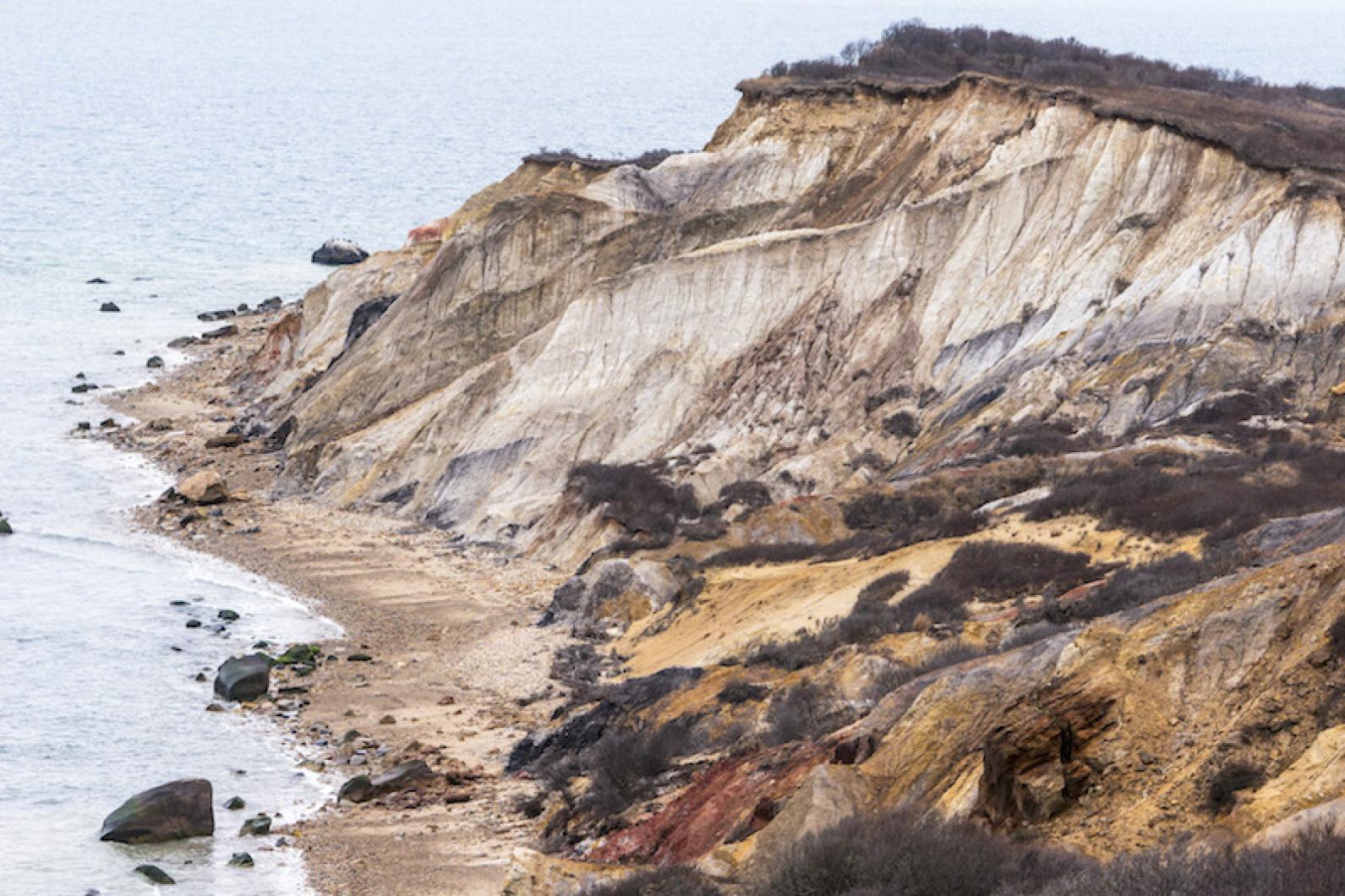Facing long odds, the town of Aquinnah and a community group this week officially decided to fight to overturn an appellate court’s ruling that a gambling hall can be located on tribal land at the Island’s western edge.
Aquinnah selectmen discussed legal strategy Thursday afternoon before formally voting to “pursue all appellate avenues of relief, including . . . taking the case to the Supreme Court,” said town administrator Adam Wilson, after the five-minute closed session at town hall.
Selectmen Juli Vanderhoop and Gary Haley endorsed the move, after a discussion with Mr. Wilson and town counsel Ronald H. Rappaport. Selectman Jim Newman, who was out of the country, expressed his support via FaceTime before the meeting began, but did not participate in the official vote.
The town, the Aquinnah/Gay Head Community Association (AGHCA) and likely the state will be appealing an April 10 decision by the U.S. Court of Appeals for the 1st Circuit in Boston.
In that decision, a three-judge panel unanimously ruled that the Wampanoag Tribe of Gay Head (Aquinnah) had exercised enough governmental authority to qualify for gaming under the 1988 Indian Gaming Regulatory Act (IGRA), and that IGRA trumped an earlier federal Massachusetts Settlement Act that included gambling prohibitions.
The ruling reversed a 2015 decision by U.S. District Court Judge F. Dennis Saylor 4th, who supported the position that the tribe did not have a right to operate a gaming operation on the Vineyard. “Fundamentally, we think the first circuit got it wrong and the U.S. District Court got it right,” Mr. Rappaport said yesterday, explaining the appeal. “Going back to the settlement agreement, we think it’s clear that all the laws of town and state apply to tribal lands, including those involving gaming.”
Earlier in the week, the AGHCA announced its plans to join an appeal. In a statement, association president Larry Hohlt said the group and its attorneys believe the “decision is materially incorrect in a number of aspects.”
“Accordingly, we also confirm that we will continue our efforts (presumably along with the commonwealth and the town of Aquinnah) in this litigation, including if need be, and if the court accepts the case, to the U.S. Supreme Court,” the statement said.
Mr. Rappaport said the town has not heard officially about the state’s decision on an appeal, but added: “I hope and am optimistic that they will join” the town and the community group. They face a Monday deadline to file a motion for a stay blocking the appellate court’s decision from taking effect.
Mr. Rappaport declined to say whether an appeal would be first directed to the Supreme Court, or to an en banc — or full court — review by the 1st Circuit, until he confers with lawyers for the other parties. “We’re waiting to see what the commonwealth does before we make a decision,” he said.
Either way, the numbers don’t work in their favor. The U.S. Supreme Court receives between 7,000 and 8,000 requests to hear cases each year, and grants hearings in only about 80 cases, according to the court’s own data.
Getting the full court of the 1st Circuit to hear a case appears to be even tougher. Approximately 1,400 cases were “terminated” by the 1st Circuit Court in the year ending September 2016, either procedurally or on their merits, but only two of them were decided by the full court.
In order for the six-member court to hear such an appeal, at least one of the three judges who ruled against the town last week would have to agree to review the decision with the three judges who did not sit on the panel, a court official said.







Comments (5)
Comments
Comment policy »